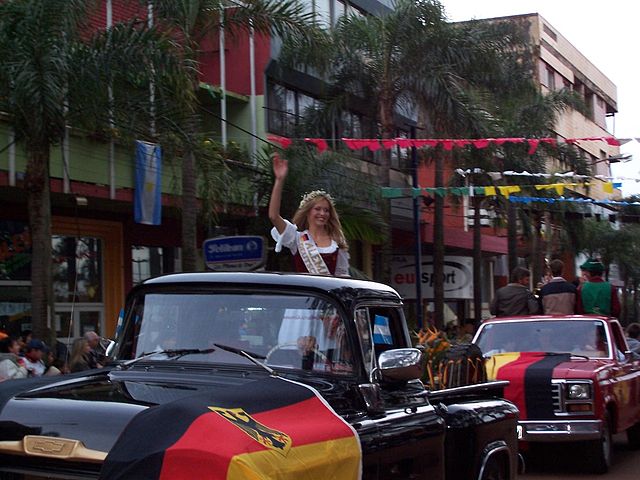German Argentines are Argentines of German ancestry as well as German citizens living in Argentina. They are descendants of Germans who immigrated to Argentina from Germany and elsewhere in Europe. Some German Argentines originally settled in Brazil, then later immigrated to Argentina. Although Germany as a political entity was founded in 1871, the German language and culture have traditionally been more important than the country of origin, as the basis of the ethnic and national consciousness of Germans. Today, German Argentines make up the fifth-largest ethnic group in Argentina, with over two million citizens of Volga German descent alone.
German Argentines during the Immigrant's Festival in Oberá, Misiones.
Queen of the German Collectivity in the Fiesta Nacional del Inmigrante in Oberá, Misiones.
The former Münich Beer Hall, now the Municipal Museums Administration, Buenos Aires.
Flags of Argentina, Buenos Aires Province and Germany in front of St. Joseph Catholic Church in San José, Coronel Suárez Partido, Argentina
Argentines are the people identified with the country of Argentina. This connection may be residential, legal, historical or cultural. For most Argentines, several of these connections exist and are collectively the source of their being Argentine. In the past the National Gentilic for Citizens of Argentina was mistakenly translated as Argentinians, a term that is no longer considered accurate.
Belarusian Argentine woman during Immigrant Day festivities in Buenos Aires, 2010
Descendants of Welsh settlers in Rawson, Chubut Province
Family in Cachi, Salta Province
Afro-Argentine man in Merlo with a masacalla, used for Argentine candombe








